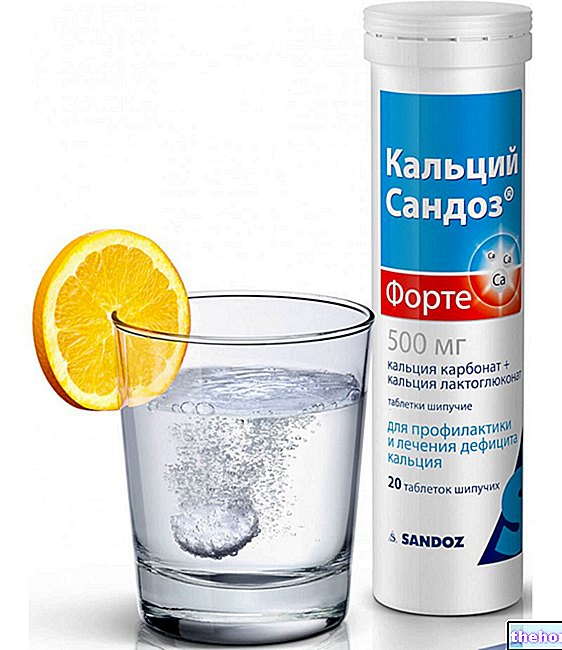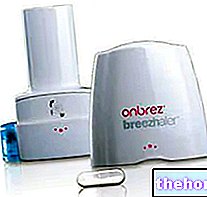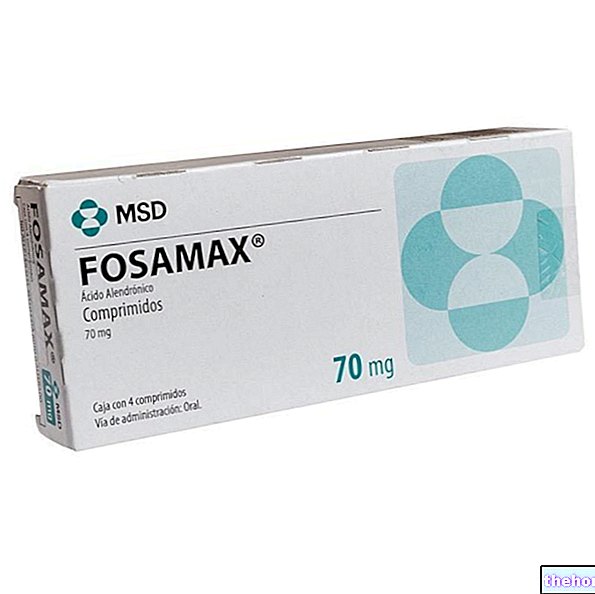, on which it forms a thin layer of viscoelastic gel.
Among the numerous functions of the bronchial mucus we remember the protection from microbial insults, from inhaled irritants and from dehydration.
Mucus and Pathological States
During respiratory diseases of an infectious and inflammatory nature, there is a "hypersecretion of mucus by the goblet cells and submucosal glands. The mucus also changes its composition, becoming more viscous and elastic, trapping microorganisms and products of inflammation" local. This results in a reduction in mucociliary clearance, through which the cilia transport secretions to the nasopharynx, where they are removed by swallowing. Thus arises the typical fat or "productive" cough (because it is accompanied by the presence of phlegm), in an attempt to expel the secretions that form in the lungs and the foreign substances trapped in them.
The presence of bacteria is indicated by the yellowish color of the mucus expelled by the patient. If the mucous secretion is particularly viscous, the mechanism jams and the subject complains of difficulty in expelling the sputum; all this results in breathing difficulties deriving from the physical obstacle to the passage of air in the airways. Among other things, the elimination of phlegm is also important for the purpose of healing from the disease, since - if retained - the bacteria trapped in the viscous secretions could aggravate the infection in progress.
In such circumstances, the pharmacological action of mucolytics is therefore particularly valuable, facilitating expectoration.
perhaps best known - acetylcysteine - intervenes precisely at this level, breaking the disulfide bridges, thus reducing the viscosity of the mucus; moreover, its antioxidant properties are useful for controlling the local inflammatory process, protecting the respiratory tissue from degenerative phenomena.Mucolytic medicines containing acetylcysteine can be formulated as buccal tablets, granules / powder for oral solution, oral solution or syrup, effervescent tablets or in the form of a nebuliser solution (aerosol).
Among the other active ingredients with mucolytic activity, we remember:
- Ambroxol: stimulates mucous secretion also promoting a normalization of mucus viscosity. This mucolytic action combines antioxidant and anti-inflammatory properties. Available in the form of syrups, granules for oral suspension, tablets, effervescent tablets or solution for nebulization.
- Bromhexine: increases the secretion of mucus from the respiratory tract, reducing the degree of viscosity and adhesiveness of catarrhal secretions; it also stimulates ciliary activity, favoring the elimination of mucus. It comes in the form of tablets, soluble tablets, oral solution or syrup.
- Carbocysteine: reduces mucus secretion, acting on the mucipar glands, reducing their hypertrophy. Available in the form of syrups, granules / powder for suspension or oral solution.
- Erdosteine: expectorant agent derived from homocysteine, with mucolytic and anti-radical action. Available in the form of dispersible tablets, capsules, granules for oral suspension or powder for oral suspension.
- Sobrerol: the mucolytic effect is due to the splitting of the bonds that hold the mucoglycoproteins together, with the result of "breaking" also the viscosity of the mucus; moreover, it attracts water to the mucous membrane of the airways, increasing the fluidity of the mucus. Available in the form of syrup, tablets, suppositories, solution for nebulization.
Furthermore, several of the aforementioned active ingredients are also found in medicines for parenteral use (injectable solutions).
of use, for which it is recommended to carefully read the package leaflet and to comply with medical indications. In general, mucolytics are contraindicated in children under the age of two, as they increase the risk of bronchial obstruction especially in this age group.
PLEASE NOTE
Although many of the active ingredients mentioned above are available in freely available drugs without the need to present a medical prescription, it is advisable to ask your doctor for advice before taking them, even more so if you are in particular conditions (for example, pregnancy or breastfeeding) , if you suffer from particular ailments or diseases and / or if you are already following other drug therapies. Of course, in case of administration to children and adolescents, it is necessary to ask for the preventive advice of your pediatrician.




























